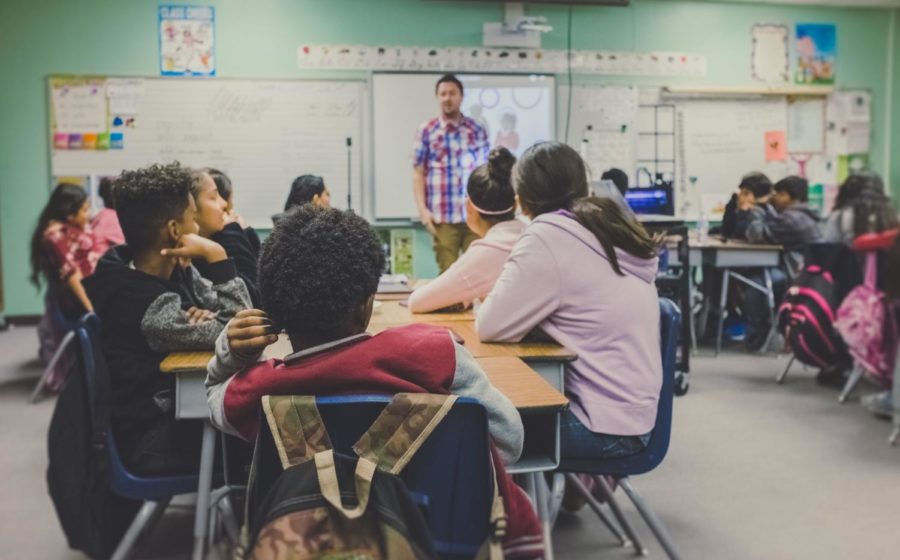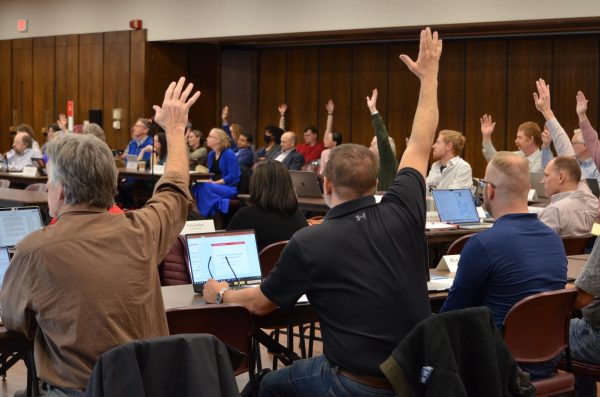- News
- News / Politics And Administration
- News / Politics And Administration / State
- News / State
- Politics
‘Very detrimental to our state’: Educators discuss school vouchers, public funding
Diversion or alternative resolutions are offered to low-level and nonviolent offenders as a way to avoid severe legal consequences.
In the wake of the recently passed Students First Act, educators express uncertainty and frustration over the future of public education.
As previously reported by the Daily, the program will enable families to apply for an educational savings account, which will allow them to use public funds toward the tuition of a private institution.
Ervin Rowlands, principal of St. Cecilia Catholic School, said as a former public educator, it has been frustrating for him to witness the state’s lack of support for public schools, highlighting a 3% funding increase for public schools the legislature passed Thursday.
“The funding increases in public schools have not been enough money the last 10 years, and I support kids in Iowa–I feel I can do that coming from both a public and private background,” Rowlands said. “I want what’s best for the kids for Iowa, [and] that means funding all kids in the state of Iowa, and we’re not funding our kids in Iowa.”
Mike Beranek, president of the Iowa State Education Association, echoed Rowlands’ sentiments.
“Our public schools are at a point where they are in desperate need of financial resources to continue to provide a high-quality education,” Beranek said. “Iowa is regarded as one of the best states in terms of our educational system for our children, but when we don’t support it financially, then there are negative consequences that could occur.”
Rowlands said the voucher program would benefit Iowans.
“I think that’s gonna be an outstanding opportunity for families,” Rowlands said. “We’re going to have some problems as we learn how this is going to work, but it does provide, on the intent of the bill, choices to families.”
Under the future voucher model, Beranek said some students would not be able to have a free choice.
“Private schools have the ability to choose who they want to attend their schools, and so if a child has some kind of learning disability, or may have mental health issues which affects their behavior, a private school can say, ‘No, we don’t want you to come to our school,’” Beranek said. “Not everyone who has a child in Iowa will be able to utilize this money because of the restrictions and limitations placed on them by the private institution.”
Rowlands said while he would like to accept children from a range of abilities under the new funding model, his school would not be able to do so without access to the funds.
“We are open to having students of all abilities, all skill levels, here in our building,” Rowlands said. “With some of those children, there are some special programming you need. We’re willing to provide that if we have the funding. This new law does not provide that funding that public schools receive right now.”
Beranek said the legislature’s move is “very detrimental” to Iowa.
“Not only in terms of what it means to public education, but the philosophy of using public tax dollars for private use is something that I would never have imagined could occur here in our state,” Beranek said.
Rowlands said the state is funding families–not private schools–allowing parents to make this choice of where they want to send their dollars by themselves.
“Technically, the state of Iowa is not giving money to private schools–or church schools in this case–[…] so that’s a distinction: a voucher program gives money from the state to the schools,” Rowlands said. “This does not do that. It gives it to families.”
Expert Insights
Karen Kedrowski, director of the Carrie Chapman Catt Center, said with the funds being entitlements as opposed to being issued by a means test, the opportunities for low-income students are minimized.
“That means that families that are already paying to put their children in private schools, and presumably paying a handsome, handsome amount of money to do that, would be getting essentially a giveaway,” Kedrowski said. “So it doesn’t necessarily mean that it’s going to open up opportunities for low-income students as much as it would subsidize high-income students.”
Kedrowski said some worry the voucher program could “decimate” public schools.
“[Some worry] that many of the students would simply exit the public schools and take those dollars with them,” Kedrowski said.
Similar to concerns shared by Beranek, Kedrowski said that not all students who wish to attend private schools would be able to.
“Unlike public schools who have to enroll every student who shows up at the door, a private school does not, so they could turn down a student because the student has physical or learning or emotional needs that they can’t meet, or they don’t want to meet,” Kedrowski said.
Kedrowski said the voucher legislation skipped the appropriations committee so it could be fast-tracked and moved along. She said the speed at which the legislation was passed had prevented legislators from knowing exactly how much the legislation will cost in total.
“It is going to be costly,” Kedrowski said. “So far, the only cost estimates that there are, are sort of competing cost estimates, and what’s likely to be is that supporters are underestimating the cost, opponents might be overestimating the cost, but the answer is that they really don’t know.”
Your donation will support the student journalists of the Iowa State Daily. Your contribution will allow us to purchase equipment, send our student journalists to conferences and off-set their cost of living so they can continue to do best-in-the-nation work at the Iowa State Daily.













